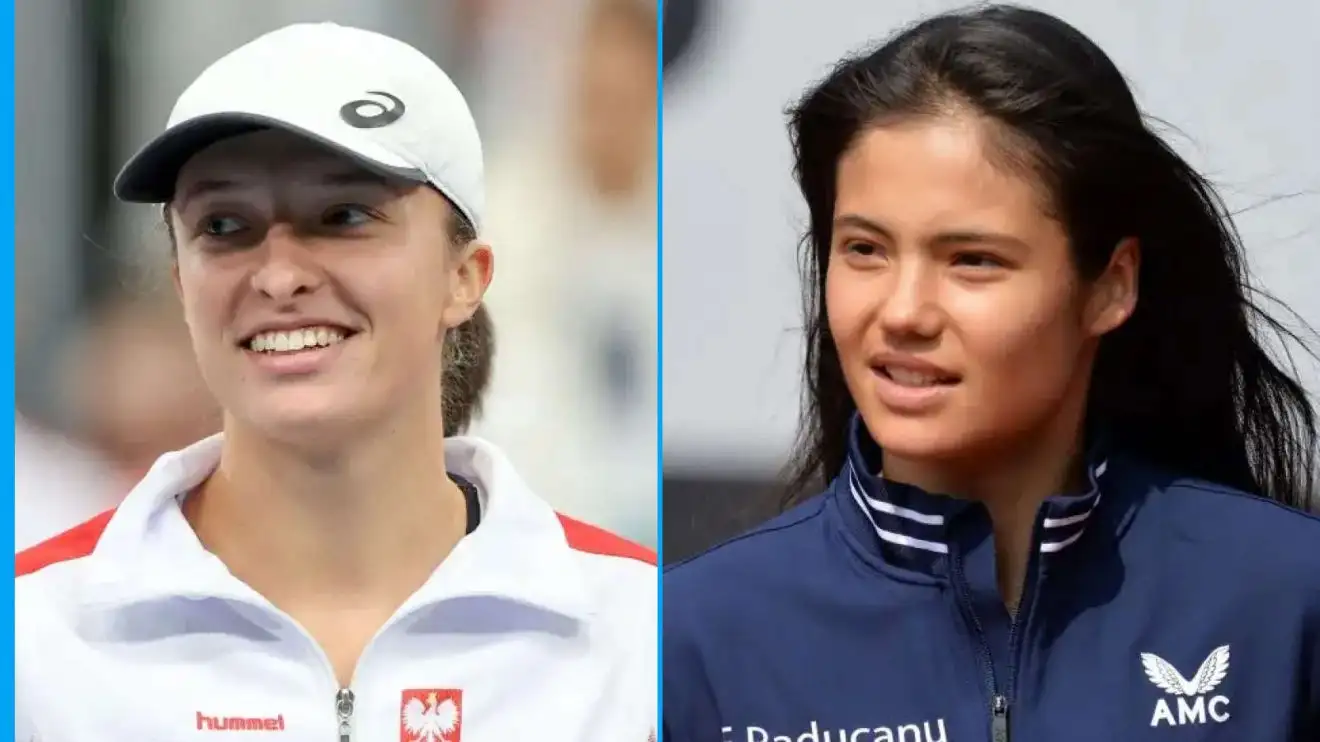
In a surprising turn of events, tennis stars Emma Raducanu and Iga Swiatek have withdrawn from the upcoming Billie Jean King Cup qualifiers, raising eyebrows across the sport and igniting debate about the future of this storied team competition. Their decisions, announced just days before the event, have left fans and officials grappling with questions about player priorities, scheduling conflicts, and the enduring appeal of a tournament that has long symbolized national pride in women’s tennis. As the tennis world processes the absence of these two Grand Slam champions, the conversation is shifting toward what this means for a competition steeped in history yet struggling to retain its star power.
Emma Raducanu, Britain’s 22-year-old sensation, and Iga Swiatek, Poland’s world No. 2, are household names whose presence in any tournament guarantees attention. Raducanu, the 2021 US Open champion, has been a beacon of resilience, battling injuries and rediscovering her form with a standout quarterfinal run at the Miami Open earlier this year. Swiatek, a five-time Grand Slam winner, has dominated the WTA Tour with her relentless athleticism and topspin-heavy game, cementing her status as one of the sport’s brightest stars. Their decisions to skip the Billie Jean King Cup qualifiers—Raducanu citing the need for a training block after a grueling schedule, and Swiatek emphasizing a need for “balance” and personal focus—have sparked concern that the competition may be losing its allure for top talent.
The Billie Jean King Cup, formerly known as the Fed Cup, has been a cornerstone of women’s tennis since its inception in 1963, offering players a rare chance to compete for their countries rather than individual glory. For Britain, Raducanu’s absence is a blow, as her flair and fighting spirit have electrified Team GB in past ties. “I recognise this has been a difficult decision for Emma,” said team captain Anne Keothavong, acknowledging the physical and mental toll of the professional circuit. Raducanu’s withdrawal comes after a season marked by seven tournament appearances, a testament to her commitment but also a reminder of the relentless demands on young players. Her choice to prioritize a multi-week training stint reflects a strategic pivot toward long-term growth, especially with the clay season looming.
Swiatek’s decision carries similar weight. Poland, hosting Switzerland and Ukraine in a round-robin qualifier, will miss their star player’s commanding presence. “I always represent my country with pride. I played everything there was to play for the country last year,” Swiatek said, referencing her role in Poland’s semifinal run in 2024 and their United Cup final appearance. Her choice to focus on training and personal well-being follows a challenging Miami Open, where she faced not only a quarterfinal loss to rising star Alexandra Eala but also unsettling harassment from a fan during practice, prompting extra security measures. “Now it’s time for more balance, focusing on myself and my training,” she added, a sentiment that resonates in an era where mental health is a growing priority for athletes.
The absence of Raducanu and Swiatek—joined by other big names like Coco Gauff and Jessica Pegula—has fueled speculation about the Billie Jean King Cup’s place in a crowded tennis calendar. Sandwiched between the WTA 1000 events in Indian Wells and Miami and the start of the clay season, the qualifiers face stiff competition for players’ time and energy. “It’s tough for every nation to put out their best players in each tie,” Keothavong noted, pointing to a broader issue within the sport’s structure. The grueling circuit leaves little room for recovery, forcing players to make tough calls. For Raducanu and Swiatek, both at pivotal points in their careers, the decision to step back underscores a need to balance national duty with personal goals.
Critics argue that the Billie Jean King Cup’s format and timing may need an overhaul to remain relevant. Once a highlight of the tennis calendar, the event now competes with lucrative tournaments and the ever-present pressure to maintain rankings and fitness. Yet, defenders of the competition highlight its unique role in fostering camaraderie and patriotism. For players like Raducanu, who has spoken of her pride in representing Britain, and Swiatek, who cherishes Poland’s tennis legacy, the Cup remains a meaningful stage—just not this time.
As the qualifiers approach, the focus shifts to the players stepping up in their absence. For Britain, facing Germany and the Netherlands, and Poland, hosting their group, the opportunity arises for new faces to shine. Meanwhile, Raducanu and Swiatek will turn their attention to training courts, preparing for battles ahead in Rouen and beyond. Their withdrawals may sting, but they also reflect a deeper truth about modern tennis: even the brightest stars must navigate a delicate dance between ambition, obligation, and self-preservation. Whether the Billie Jean King Cup can adapt to these realities will determine its place in the sport’s future—a challenge as compelling as any match on the court.
*Word count: 512*
Leave a Reply